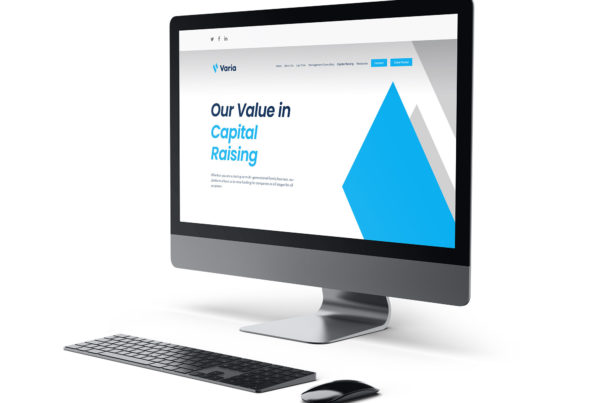We understand that what your website needs to last, impress, and be easy to upkeep. That’s why we develop on WordPress, one of the most-used Content Management Systems (CMS) in the world. Being so large, there are quite a few misconceptions about the platform’s pros and cons. So we wanted to clear the air. Below are some of the reasons we fully stand behind WordPress, and recommend it to the majority of our clients in need of a site.
Out-of-the-Box To Start, Custom When Read
The adage “don’t reinvent the wheel” is constantly used for a reason. Most companies use a website for the following: Customer validation, information gathering, and lead generation. Each of which can easily be implemented without any custom building. WordPress themes, out of the gate, are set up to execute these simple tasks. The nice part? It’s fully customizable when the time comes. This means that as your company changes and grows, so can your digital presence. The alternative? Lock yourself into a lesser-used platform that (a) dates quickly and (b) takes an unusually large amount of time and budget to make small changes.
Plugin-Centric
The WordPress Plugin database is limitless. We have yet to run into a situation where a desired function isn’t available via an already-created solution. Most even come with free versions and trials that can be experimented with. Don’t spin your wheels developing custom workarounds that are untested—leverage review-based and trustworthy solutions that have support and compatibility information clearly available.
Integrations Galore
Leveraging Zapier, your WordPress backend can connect with almost any other platform in existence. This includes QuickBooks, HubSpot, Google Drive, Slack, Asana, Monday, etc. This comprehensive list shows how well-versed WordPress is when it comes to integrating other systems your organization is subscribed to.
WP Engine
One of the primary reasons we feel so comfortable leveraging WordPress is the hosting solution we leverage via WP Engine. Supported by a dedicated Mirror Matter server, our clients reap the following benefits: Managed Core Updates & Patches, Fully-Managed CDN, Data Center Redundancy, PHP Selector & Test Driver, SSL Certificates, Automatic Encrypted Backups, Threat Detection & Blocking, and 24/7/365 Support. If that doesn’t let you sleep well at night, we’re not sure what will.
Born for SEO
Out of the box, your WordPress website will embrace search engines. With a smart and well-guided infrastructure, crawls can easily find information about your posts, pages, and categories—ensuring that your important content is properly displayed. As new themes are implemented and, if necessary, customizations are made, these innate features will be replaced (and improved upon) with plugins like Yoast SEO, that allow for additional customization and editing for an improved SEO presence. Once that stage is reached, the key is to focus on strong content that’s relevant to your consumers; properly organized and hierarchical keywords, links, and titles that support your content; and properly described images and videos via alt tags. For this stage, make sure you have a partner that’s able to guide you through the process!
Conclusion
If your primary goals involve landing page views, contact form fill-outs, and having the ability to track and retarget your audiences, then WordPress is probably right for you. Even if you need greater customization, our experience tells us that WordPress is still the recommended solution, but some additional research on plugins and specific would go into making that a concrete statement.





